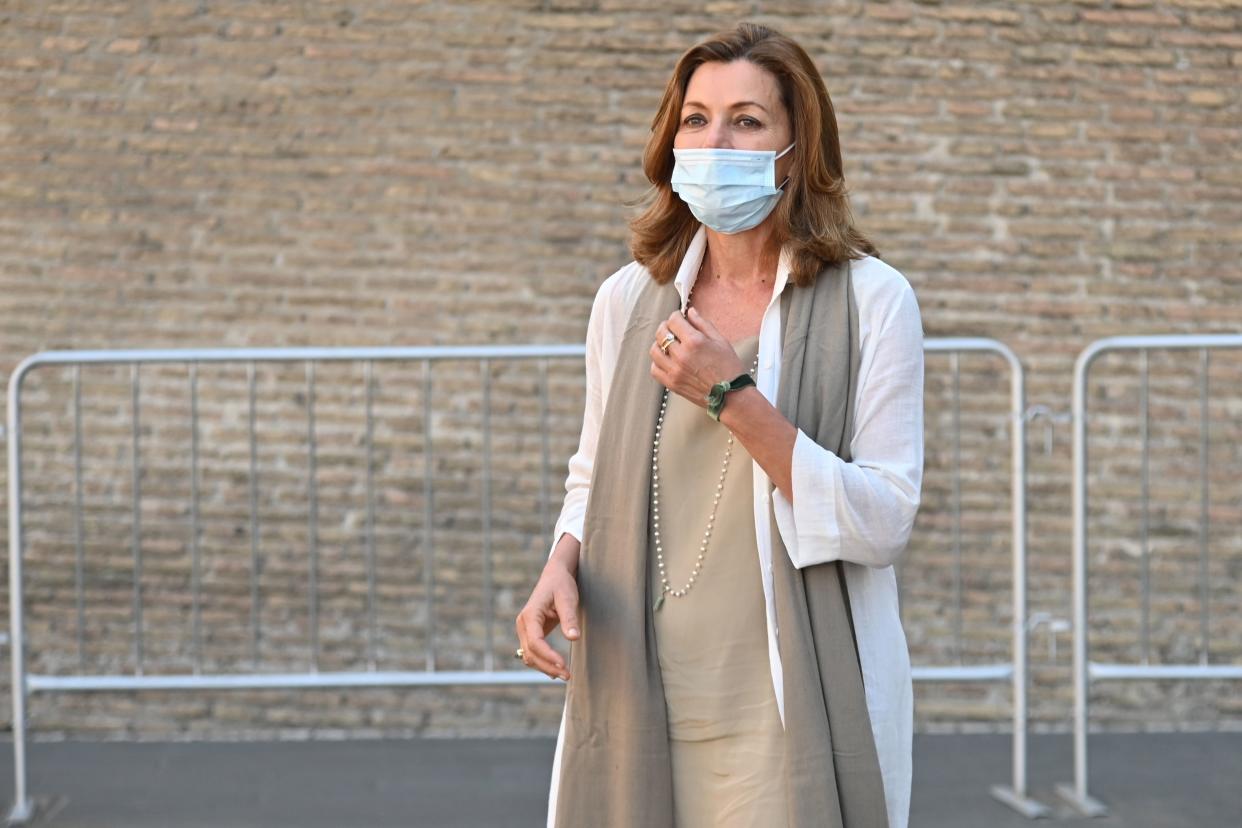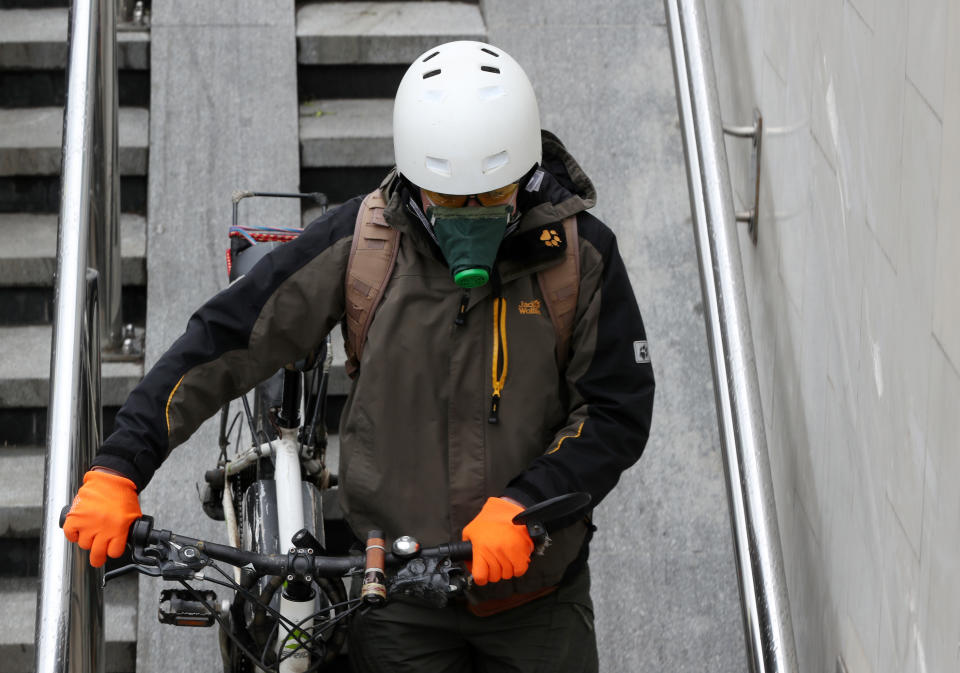Coronavirus leaves 2.4 million Britons in ‘cancer care backlog’

The coronavirus outbreak has triggered a “cancer care backlog”, research suggests.
An analysis by Cancer Research UK revealed around 2.4 million Britons are awaiting screenings, tests or treatment during lockdown.
Screening has been most affected, with 2.1 million people missing out on smears, mammograms and bowel assessments.
Cancer Research UK expects around 3,800 cancer cases would normally be diagnosed during this time.
Early research suggests the coronavirus is mild in four out of five cases, however, it can trigger a respiratory disease called COVID-19.

“The enormous strain COVID-19 has placed on cancer services is of great concern to us,” said Michelle Mitchell, chief executive of Cancer Research UK.
“The NHS has had to make very hard decisions to balance risk, and there have been some difficult discussions with patients about their safety and ability to continue treatment during this time.
“But we’re over the peak of the pandemic now, and cancer care is starting to get up and running again as ‘COVID-protected’ spaces are being set up.”
One in two people born after 1960 in the UK will statistically develop some form of cancer in their life.
Cancer patient ‘in a queue’ for treatment
One who knows the impact of the coronavirus on cancer care all too well is Paul Soderquist.
The Londoner, 66, was diagnosed with lung and prostate cancer in 2019.
He had surgery for lung cancer in February, but the radiotherapy for his prostate tumour had to be put on hold.
“I was in the unusual position of getting two diagnoses within a few weeks and I count my blessings I had my lung surgery earlier this year”, said Soderquist.
He has been told his prostate cancer is non-aggressive and he should make a full recovery, however, the delay to treatment has made him anxious.
“I was due to have radiotherapy, but it’s been postponed until September because of the virus, although I’m still having injections to inhibit testosterone,” said Soderquist.
Testosterone has been shown to promote prostate cancer growth.
“I understand the reasons for the delay, and I know I’m in a queue, but things feel uncertain,” said Soderquist.

Cancer patients ‘shouldn’t need to wait for coronavirus to be over’
The Cancer Research UK analysis also found up to 290,000 urgent cancer cases, which should be referred to a specialist within two weeks, are missing out.
As many as 20,300 incidences of the disease would normally be caught during this time, according to the charity.
There is also a backlog of treatment, with up to 12,750 patients missing out on surgery, 6,000 going without chemo and 2,800 not having radiotherapy.
“COVID-protected” spaces are due to address the growing backlog, allowing more people to be diagnosed and treated safely.
Cancer Research UK has warned this will only be effective if all patients and staff are regularly tested for the coronavirus, regardless of whether they have symptoms.
“We know that carrying [the coronavirus] while asymptomatic or pre-symptomatic is a major concern where healthcare worker staff and patients can transmit infection,” said Professor Charles Swanton, Cancer Research UK’s chief clinician.
The charity’s analysis found that to test patients ahead of hospital appointments and staff once a week, between 21,000 and 37,000 swabs must be carried out every day.
“We now need clear national leadership and guidance for the NHS to dramatically increase testing levels,” said Mitchell.
“At the moment, we don’t know who is responsible for making cancer services safe and it’s patients who are suffering in the meantime.
“The government must work closely with the NHS to ramp up testing provision with rapid results, as quickly as possible once practical.
“Prompt diagnosis and treatment remain crucial to give people with cancer the greatest chances of survival and prevent the pandemic taking even more lives.”
Professor Swanton added: “My colleagues and I have seen the devastating impact this pandemic has had on both patients and NHS staff.
“Delays to diagnosis and treatment could mean that some cancers will become inoperable.
“Patients shouldn’t need to wait for this to be over before getting the treatment they need.”
This follows a recent survey of 580 patients by Breast Cancer Now that found thousands of women with an incurable form of the disease are concerned about delayed treatment, scans and access to clinical trials.
The charity’s Ask Our Nurses helpline saw a 60% surge in calls in March, when lockdown began.
NHS breast screening has been suspended in Wales, Scotland and Northern Ireland. Only some trusts in England are providing the service.
“The NHS Breast Screening Programme is critical to early detection in the UK, preventing around 1,300 deaths from breast cancer each year, and we hope this crucial service will be able to fully resume as soon as possible.” said Baroness Delyth Morgan, chief executive at Breast Cancer Now.
While steps are being taken to spot more cancers, she stressed patients with incurable or advanced breast cancer must not be “forgotten”.
“Without clear plans to restore treatment, services and trials as soon as it is safe and feasible to do so, thousands of people with advanced cancer could miss out on precious extra time with their loved ones, which would be absolutely heartbreaking,” said Baroness Morgan.
The problem is also occurring outside of the UK.
A survey of 155 countries by the World Health Organization (WHO) in May found 42% had partially or completely disrupted cancer treatment.
“Many people who need treatment for diseases like cancer, cardiovascular disease and diabetes have not been receiving the health services and medicines they need since the COVID-19 pandemic began,” said Dr Tedros Adhanom Ghebreyesus, director-general of the WHO.
“It’s vital countries find innovative ways to ensure essential services for [non-communicable diseases] continue, even as they fight COVID-19”.

What is the coronavirus?
The coronavirus is one of seven strains of a virus class that are known to infect humans.
Others cause everything from the common cold to severe acute respiratory syndrome (Sars), which killed 774 people during its 2002/3 outbreak.
Since the coronavirus outbreak was identified, more than 6.1 million cases have been confirmed worldwide, according to Johns Hopkins University.
Of these cases, over 2.6 million are known to have “recovered”.
Globally, the death toll has exceeded 372,400.
The coronavirus mainly spreads face to face via infected droplets expelled in a cough or sneeze.
There is also evidence it can spread in faeces and survive on surfaces.
The coronavirus has no “set” treatment, with most patients naturally fighting off the infection.
Those requiring hospitalisation are given “supportive care”, like ventilation, while their immune system gets to work.
Officials urge people ward off infection by washing their hands regularly and maintaining social distancing.
Coronavirus: what happened today
Click here to sign up to the latest news, advice and information with our daily Catch-up newsletter
Read more about COVID-19
How to get a coronavirus test if you have symptoms
How easing of lockdown rules affects you
In pictures: How UK school classrooms could look in new normal
How public transport could look after lockdown
How our public spaces will change in the future
Help and advice
Read the full list of official FAQs here
10 tips from the NHS to help deal with anxiety
What to do if you think you have symptoms
How to get help if you've been furloughed



